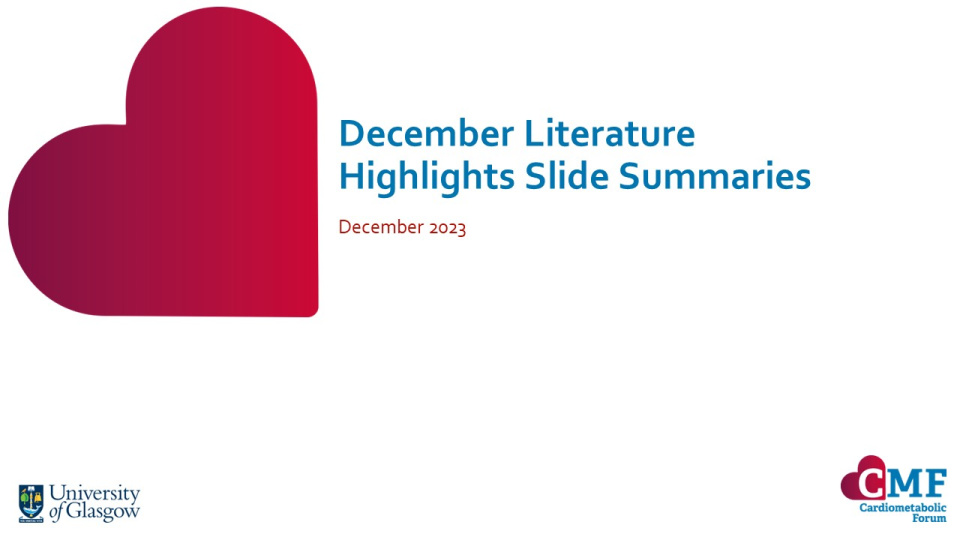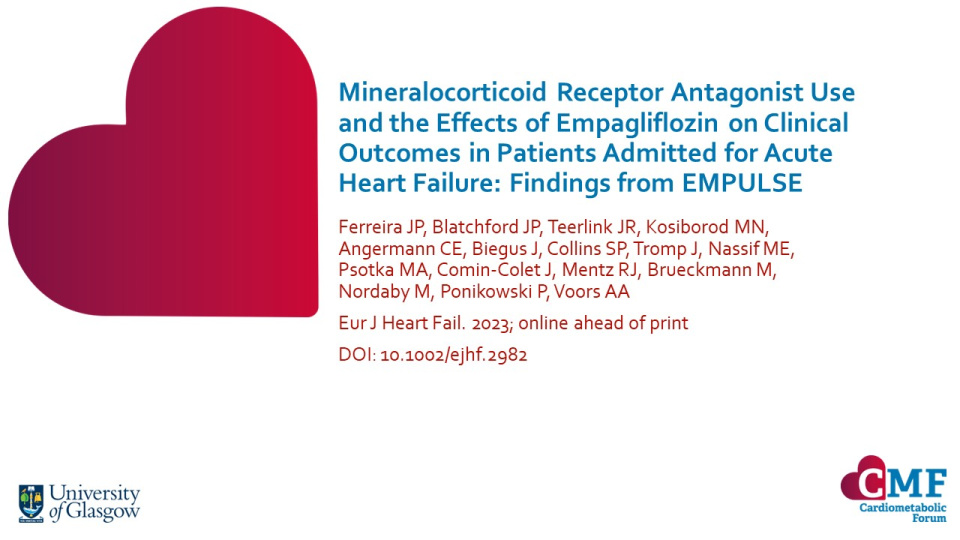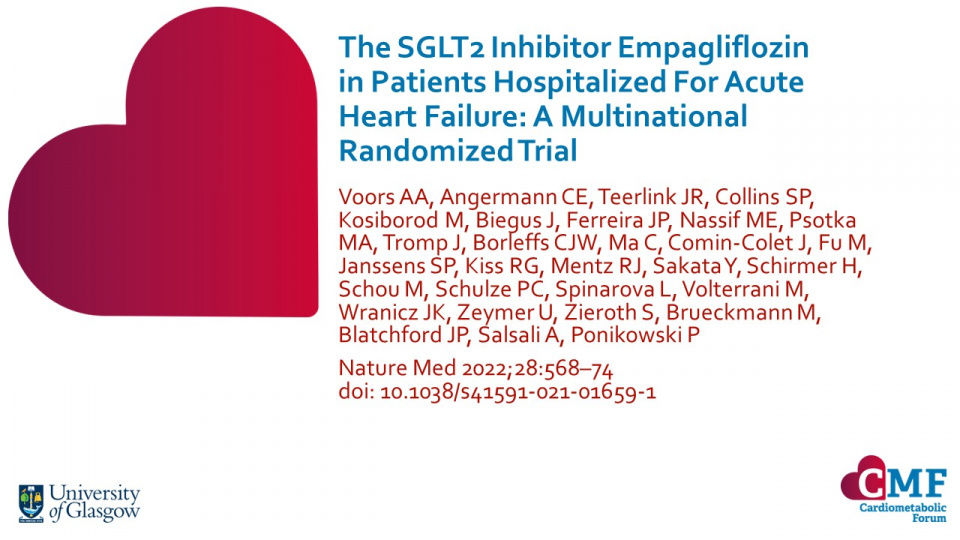Publications
Stay up to date with our literature reviews which are curated by experts to feature the most important publications released each month. Explore our publications for access to concise summary slides for your own use.
Mineralocorticoid Receptor Antagonist Use and the Effects of Empagliflozin on Clinical Outcomes in Patients Admitted for Acute Heart Failure: Findings from EMPULSE
Eur J Heart Fail. 2023; online ahead of print DOI: 10.1002/ejhf.2982
In the EMPULSE trial, empagliflozin produced greater clinical benefit than placebo in patients hospitalised for AHF. Although many patients with AHF are treated with MRAs, the interplay between empagliflozin and MRAs in AHF has not been explored. A post-hoc analysis of the EMPULSE trial aimed to evaluate the efficacy and safety of empagliflozin versus placebo according to MRA use at baseline.
Keywords:
The SGLT2 Inhibitor Empagliflozin in Patients Hospitalized For Acute Heart Failure: A Multinational Randomized Trial
Nature Med 2022;28:568–74 doi: 10.1038/s41591-021-01659-1
Empagliflozin is well tolerated in patients hospitalised for acute heart failure, resulting in significant clinical benefit 90 days after treatment initiation.



